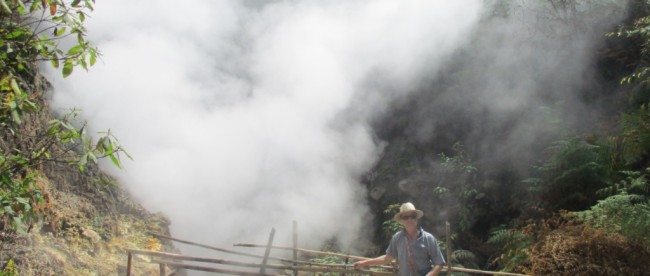The raw ore export ban/ tax needs revision to allow for mineral processing sample testing.
Oil, coal and minerals each need an element of mineral process testing as input towards a Pre-Feasibility / Feasibility study. There are well established testing laboratories in Indonesia for most of the oil and coal industries needs. The regulations relating to the coal industry recognize the need for bulk testing abroad, though the PKP2B facility for “trial shipments”.
The Indonesian laboratories are less complete to serve the mineral industry, and need to deal with a much wider range of project specific technical issues.
Mineral processing typically comprises two main areas, one related to crushing and ore beneficiation (crushing, grinding, gravity separation etc), and the other for chemical process (leaching, flotation etc) to extract the selected mineral. Auxiliary studies often review the waste disposal and environmental considerations associated with the planed process plant. This laboratory testing typically requires a few hundred kilograms for the initial bench top studies, and later a few hundred tons (or more) for more detailed studies aimed at process plant design. These studies need to be carried out with calibrated equipment and properly trained technicians, with ISO (or other suitable) certification to provide assurances the Feasibility Study is bankable. For some big budget process plants, the financiers may have an input in nominating which laboratories are acceptable for bankable studies.
Exploration companies are typically very happy if they can source such testing laboratories in Indonesia, for faster turn-around and competitive price. However the Indonesian laboratories are often not complete. It is not within the scope of an exploration company to invest in developing in-house, or expanding local mineral processing laboratories, as such development may take significant budget and time (perhaps 1 year) for such a limited one time use. Each mineral resource may have some common and some unique mineralogical settings that require a tailored mineralogy process flow chart. Commercial or State mineral testing laboratories also find it non-viable to acquire and maintain every form of testing apparatus & certified technicians. Some well established international mineral testing laboratories have a rich history of testing ores from around the globe, or of testing specific genesis of ores, and may be more experienced/ suitable for testing a new raw ore from Indonesia.
It is understood that the raw ore export ban has been interpreted by the ESDM to apply to all raw ore, including such relatively small amounts for mineral testing abroad. This interpretation is largely due to the limited nature of the regulation effectively banning all raw ore exports. Consequently a permit for raw ore export of a few hundred kilograms for testing presents a significant obstacle towards the development of the Indonesia’s exploration sector. The exploration company is undertaking research tests at its expense, and there is no income derived from such ore, thus a 20% export tax makes no sense, and has no significant contribution to the government’s income.

